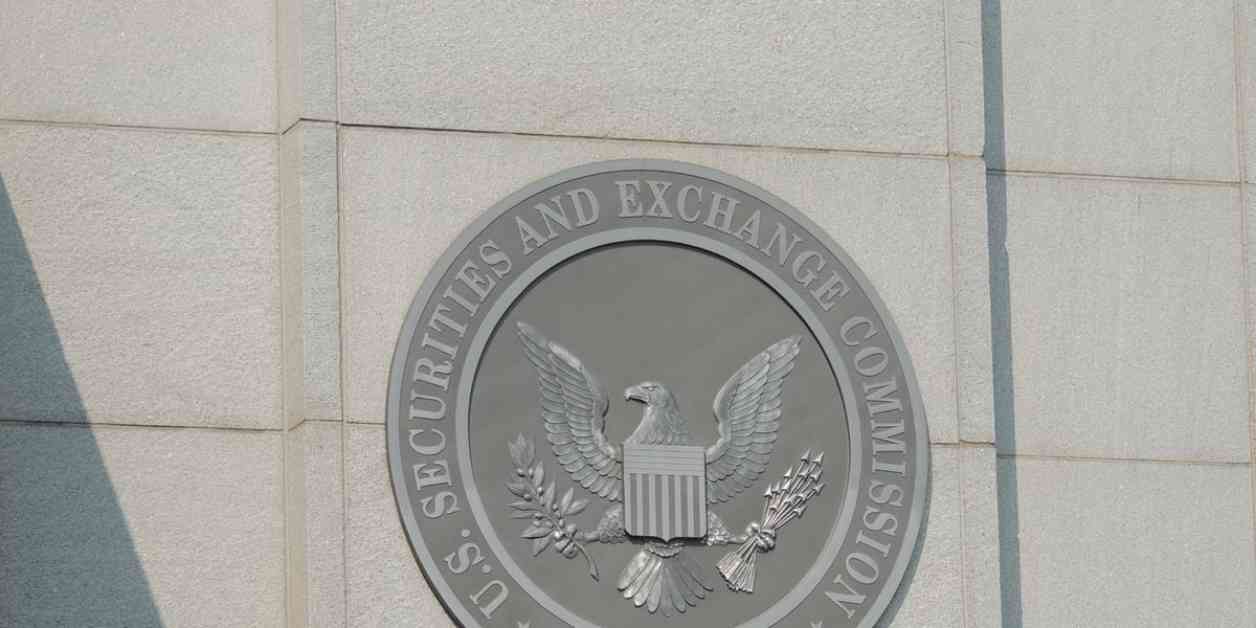Trading platform eToro has agreed to pay $1.5 million to settle charges it operated as an unregistered broker and clearing agency, as well as facilitated trading of certain crypto assets as securities, according to a statement from the U.S. Securities and Exchange Commission (SEC) on Thursday.
The SEC’s order found that since at least 2020, eToro allowed U.S. customers to trade crypto assets being offered and sold as securities without complying with the registration provisions of federal securities laws. While eToro did not admit or deny wrongdoing, the company has agreed to cease and desist from violating applicable federal securities laws and will now only make a limited set of crypto assets available for trading.
In response to the settlement, eToro will only offer bitcoin (BTC), bitcoin cash (BCH), and ether (ETH) for trading on its platform for U.S. customers. The company stated that only about 3% of customers’ crypto assets by dollar value are affected by these restrictions. A spokesperson for eToro clarified that only positions that cannot be transferred to the eToro crypto wallet will be impacted, while positions in coins redeemable to the wallet can remain as open positions without requiring any action from users.
“This settlement allows us to move forward and focus on providing innovative and relevant products across our diversified U.S. business,” said Yoni Assia, eToro’s Co-founder and CEO, in a press release to CoinDesk.
The SEC’s enforcement action against eToro is part of a broader crackdown on crypto firms that the regulator believes have violated securities laws. The agency has recently made progress in its case against Ripple, with a federal judge ruling that Ripple must pay $125 million for violating federal securities laws with its sales of XRP.
The SEC has also taken action against Coinbase Inc., alleging that the exchange intermediated transactions in crypto-asset securities in violation of federal securities laws. The court sided with the SEC in this case, further highlighting the regulatory scrutiny facing the crypto industry.
Despite the settlement with eToro, the SEC’s order did not specify which tokens the company was handling as securities. This lack of clarity on what tokens fall under the SEC’s jurisdiction has been a point of contention between the regulator and the industry. While the SEC has provided definitions for certain tokens in the past, a formal, crypto-specific definition has yet to be established.
In response to the regulatory environment, eToro’s Assia expressed optimism about the future, stating, “We now have a clear regulatory framework for crypto assets in our home markets of the U.K. and Europe, and we believe we will see similar in the U.S. in the near future. Once this is in place, we will look to enable trading in the crypto assets that meet this framework.”
As the crypto industry continues to navigate regulatory challenges, eToro’s settlement with the SEC serves as a reminder of the importance of compliance with securities laws. With the landscape evolving rapidly, companies in the space must stay vigilant and adapt to regulatory changes to ensure their operations remain in compliance.
Implications of eToro’s Settlement
The settlement between eToro and the SEC has significant implications for the crypto industry as a whole. By agreeing to pay $1.5 million and limit the trading of certain crypto assets, eToro is setting a precedent for other platforms to adhere to securities laws and regulations.
The decision to restrict trading to only a select few crypto assets demonstrates the importance of compliance with securities laws in the current regulatory environment. As regulators like the SEC crack down on firms that violate these laws, companies must take proactive measures to ensure they are operating within the boundaries of the law.
Challenges Facing the Crypto Industry
The crypto industry faces a myriad of challenges, including regulatory uncertainty, security concerns, and market volatility. With the SEC increasing its enforcement actions against firms that violate securities laws, companies must prioritize compliance to avoid facing fines and penalties.
In the case of eToro, the settlement serves as a wake-up call for other platforms to review their operations and ensure they are in compliance with securities regulations. By taking proactive steps to address any potential violations, companies can mitigate the risk of facing enforcement actions from regulators.
Future of Crypto Regulation
As the regulatory landscape for cryptocurrencies continues to evolve, companies in the industry must stay abreast of changes and adapt their operations accordingly. With regulators like the SEC ramping up enforcement actions, compliance with securities laws is more critical than ever.
Looking ahead, it is likely that we will see more regulatory clarity around crypto assets in the U.S. and other markets. As companies work to comply with these regulations, the industry as a whole will benefit from a clearer framework that fosters innovation and growth while protecting investors.
In conclusion, eToro’s settlement with the SEC underscores the importance of compliance with securities laws in the crypto industry. By taking proactive steps to adhere to regulations, companies can navigate the evolving regulatory landscape and build a foundation for sustainable growth and success.

















